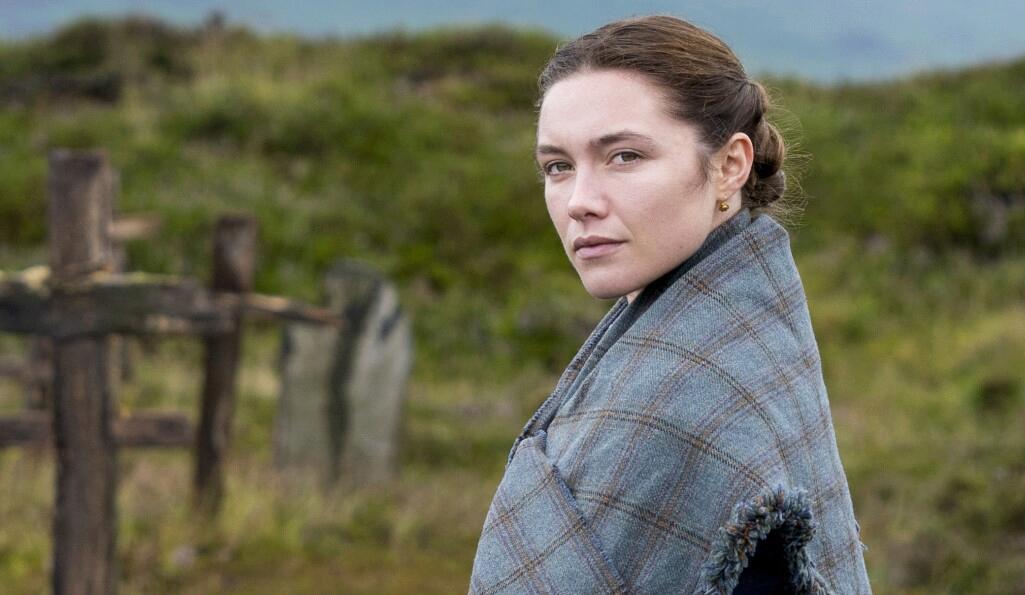How do legends start? And maybe more importantly, why do they start? The Wonder tackles those big questions, sending Florence Pugh to rural Ireland to find some answers. What answers we get challenge the very nature of storytelling itself, and if you’re like me, will unnerve you a bit as you think about what happened for the great past stories to occur in the first place.
Florence Pugh plays Lib Wright, a world weary nurse who’s served in the Crimean War in the 1850s. For her next assignment, she’s summoned to rural Ireland by a council of elders (including Toby Jones and Ciaran Hinds). A girl, Anna O’Donnell (Kila Lord Cassidy) from the village, insists she has not eaten in months, but remains in perfect health. Lib is there to determine the validity of these claims, observing what happens and reporting back to the elders. But, being the 1850s, Anna and her family have become an attraction, garnering attention from various onlookers and journalists like William Byrne (Tom Burke), also determined to find a great story in the middle of nowhere.
The first half of The Wonder is a fascinating mystery. We follow Pugh’s Lib as she searches for moments where Anna might be sneaking some food and eating without Lib’s knowledge. Like Lib, we start simply, checking Anna’s room and following her around on her daily walks to make sure she’s not hiding stuff on her own. All of this is done slowly and scientifically, as Lib eliminates any possible chance for Anna to sneak some food. But as each situation is eliminated, Lelio amps up the tension; like Lib, we’re all pretty sure an 11 year old girl claiming she doesn’t eat is probably lying, and you can feel the stress and pressure Anna is under as Lib takes away pieces of her daily routine to solve the mystery, resulting in real medical complications. The movie then starts to change, as the mystery comes closer to resolution but Anna’s fate becomes cloudier and cloudier with each passing day, because Lib wants to help, but the powers than be prefer her to just observe and not intervene. Tension builds and builds until about an hour in, when Kila Lord Cassidy delivers this incredible monologue laying all of Anna’s truths out for Lib to take in.
From there, The Wonder becomes a different movie altogether. Lib finds herself in conflict with herself, about whether to stay neutral or intervene, and whether to go public to everyone in the town about the results of her “observations.” The devout religious community and elders use their religious beliefs to push Lib toward the answers they want, which usually are not the correct ones. Lib, almost like a heist movie, has to find a way out of this situation she’s stuck in, without having her end up in jail or having Anna used as a prop and discarded when she’s of no more use to the town or the O’Donnell family. To choose between the best story or the correct story. Like Lib, the tale of the “girl who never eats” makes us all go back and question other tales bourn out of oppressive religious situations, and makes us really think about the people involved in them, and what harrowing realities they must have been in while they became narratives for a higher purpose.
By the end, The Wonder is anything but. If anything, Sebastian Lelio’s movie made me mad that “wonders” even exist, because they’re probably using and discarding someone for the sake of a great story. Even though The Wonder makes me feel icky, it’s a good reminder to remember that legends and heroes are usually people, and people are the real wonders, capable of great things and should be praised for who they are and not just their ability to inspire great stories.

